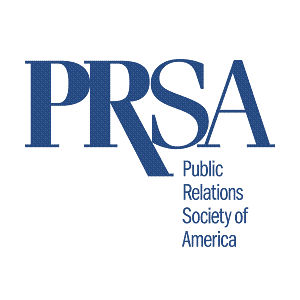
Fact: In both of the past two years, PRSA has had more than 20 candidates run for a single at-large seat on our National Board, while at the same time we’ve been unable to source a full slate of candidates to compete for other open positions.
How can this be? Why would we turn away so many highly qualified and active candidates, while at the same time allow ourselves to struggle to find volunteer leaders for other positions? Below is a brief history lesson that explains why this is happening and what needs to be done at the upcoming PRSA Leadership Assembly (Oct. 7 in Boston) to solve the issue.
At present, the PRSA National Board has a geographic representation model. This decades-old model reflects the profession during a time when many communications pros were generalists and tended to define themselves by where they lived. At that time, it was appropriate for the PRSA National Board to be comprised of professionals representing a cross-section of geographic regions — hence the creation of the current representation model.
In the decades since then, the profession has changed dramatically, with many communications pros now primarily defining themselves by area of specialty. Additionally, in an era when digital and social media have lifted geographic constraints, and with companies broadening their reach and our members moving to different locations throughout their careers, the locale in which a communications professional is based has become one of a number of factors that shape an individual’s professional background and perspective.
Taking action to modernize the Board representation model
I applaud 2017 PRSA National Chair Jane Dvorak, APR, Fellow PRSA, the Board of Directors and the Governance Committee for their effort to update the Board’s representation model. At the upcoming 2017 PRSA Leadership Assembly, the Board will propose a strong slate of bylaw amendments that includes a recommendation for the geographical identifier to be removed and all candidates be selected at-large for director positions. Two questions that must be addressed immediately:
- Is this a shift away from Districts? Absolutely not. PRSA has invested heavily in District programs this year and will continue to do so. Likewise, PRSA leadership is encouraging this tier within the organization to continue to assist in nurturing and recommending viable Board candidates. And the composition of NomCom would remain the same with representation from Districts and Sections to ensure that all spectrums are considered as Board slates are selected.
- Will this remove the two non-APR seats? Not at all. These seats will remain, and by making all seats at-large, it will open the ability to select top candidates based on a broad and diverse spectrum.
It is my firm belief that this update to our representation model is critical to the long-term future of PRSA. In recent years we have received an overflow of interest in National Board service from highly capable members who do not fit the current geographic governance framework.
By continuing to ignore the clear and consistent message that we are hearing from these members, we risk mortgaging PRSA’s future. If these talented, capable leaders cannot find representation at PRSA, then we must be prepared to face the reality that they will eventually look elsewhere.
Joe Cohen, APR, is chief communications officer at AXIS Capital. He served as PRSA’s National Chair in 2014.







Joe:
Thank you, and thanks to our national board leaders and to the Governance Committee for presenting this issue and proposal for consideration.
We probably can all agree that we want the most inclusive process possible, in order to have open paths to leadership for our profession’s most qualified and engaged leaders to invest their energies toward helping advance our profession, our members’ shared interests and PRSA’s growth and strength as an organization.
I understand the leadership-recruitment frustrations you’ve outlined here.
However, I have concern that what’s being proposed via this bylaw amendment is a solution . . . to the wrong problem.
I also have concerns that PRSA is fully discounting / overlooking that geographic consideration is a driver for PRSA’s ability to include diversity of thought / experience / perspective in national board recruitment.
I’ll tackle my second concern first.
IMPORTANCE OF GEOGRAPHY AS A DIVERSITY CONSIDERATION:
Over the past decade and even dating much further back, PRSA has led many discussions and sought to make an impact in diversity thought leadership.
I appreciated the Diversity and Inclusion Committee’s social media conversations very recently during August’s D&I Month, that included statements about the importance of diversity of thought as an important consideration point.
However, PRSA has rarely delved into the matter of where our members and our leaders reside/work as an important factor in their professional and life experiences that influence myriad points of view and priorities, which are germane to PRSA’s ability to evolve with member needs and expectations.
For example, PRSA members who live and work in large urban areas (such as where you reside, Joe, in the NYC area) may have different professional development needs and priorities than those who live and work in rural, “heartland” areas (such as where I reside in East Tennessee, or, more to the point, in other areas of the country where driving to / from a PRSA meeting might be an all-day-round-trip-travel proposition).
Our urban colleagues often have far more ready / convenient geographic access to chapter meetings, interpersonal networking and local site-based programs, while rural-location colleagues must often rely on PRSA’s strength of website, social media and other online offerings to derive member value.
And this example is only but one consideration among many that are immediately relevant to all members’ PRSA experience.
PRSA’s bylaw amendment proposal as you’ve outlined appears to overlook this diversity consideration point. Yet ironically, this bylaw amendment is being promoted to our members to “improve diversity.”
Two external examples in which other thought leaders have noted geography as an important diversity consideration:
1) A 2014 paper by Katherine W. Phillips in the publication, Scientific American, treated this topic in her piece, “How Diversity Makes Us Smarter.”
(Please note in the quote below, that the wording in all-caps is my own edit, for emphasis to my point): “. . . diversity appears to lead to higher-quality scientific research. This year Richard Freeman, an economics professor at Harvard University and director of the Science and Engineering Workforce Project at the National Bureau of Economic Research, along with Wei Huang, a Harvard economics Ph.D. candidate . . . found that papers written by diverse groups receive more citations and have higher impact factors than papers written by people from the same ethnic group. Moreover, they found that stronger papers were associated with a greater number of author addresses; GEOGRAPHICAL DIVERSITY, and a larger number of references, is a reflection of more intellectual diversity.”
2) As a second example, I point to the diversity statement by noted public policy organization, The Brookings Institution, which I think is insightful toward including geography as a driver for diversity. (Again, all-caps below are my edits, for emphasis):
“At Brookings, diversity is defined as the characteristics and attributes that make each one of us unique. Diversity has many dimensions, including race, gender, and physical ability. Other dimensions may include, but are not limited to, ethnicity, national origin, nationality, religion, veteran status, sexual orientation, gender identification, and age. Even more broadly, diversity includes GEOGRAPHIC LOCATION, work experience, family status, socio-economic class, and diversity of political thought. Our goal is to leverage the varied experiences and ideas that each individual brings for the good of the organization overall.”
IMPORTANCE OF PRSA SEEKING SOLUTIONS TO ACCURATE CHALLENGES:
Now, to tackle my first point. I think that through this bylaw amendment proposal, PRSA is seeking a silver-bullet solution to the wrong problem(s).
I think that PRSA’s far greater challenges in leader recruitment entail:
1. The possibility that PRSA members from certain districts already feel disenfranchised or under-served by PRSA, such that they might feel a lack of motivation or an outright disconnect from wanting to serve in national leadership (has this issue been explored / researched?);
2. Falling short of growing our membership numbers and reach, resulting from not being perceived by a majority of public relations / strategic communications professionals as a must-have organization for professional affiliation (since it is, after all, entirely optional);
3. Lacking a well-resourced, externally heard/valued brand voice on public relations practice issues that matter and of which more PRSA leaders from all areas of the country would want to be an active part via national leadership opportunities;
4. Further engraining (even as we speak) a national leadership progression structure within PRSA that actively enables built-in / “home-cooked” politics . . . and dis-serves those who push back on PRSA’s long-held and long-ineffective policies or “this is how we do things” conventions by preventing their personal leadership progression as dynamic change agents who refuse to engage in play-along-to-get-along niceties, conducive to green-lighting later-down-the-road leadership selection during vetting deliberations (has the Governance Committee ever acknowledged this reality?).
Ditching district representation is not going to fix these problems, and in fact, doing so may only exacerbate them.
The real problems at hand (which are not new and are only intensifying in their effects with the passage of time) aren’t going to go away without purposeful effort, focus and a growth in PRSA’s financial resources to mount an execution of the appropriate strategies required to turn these tides.
Even a PRSA member from East Tennessee can see and understand this situation.
A PERSONAL ANECDOTE:
And I made that last statement with a touch of sarcasm, which is intended.
Just a few months ago, a member of the current PRSA national board who shall remain nameless “liked” a derogatory tweet about me personally, written by another individual, tagging me in the tweet by my Twitter handle.
To paraphrase, the tweet said that my professional opinions on which I had recently written in a prominent national publication were “provincial” and didn’t stack up with those from a separate organization with which my article had pointedly disagreed, located “in a global capital” (Los Angeles), the tweet said.
And this tweet was “liked” by a member of the current PRSA national board, to which I was notified in my Twitter alerts immediately — and, which I interpreted in no uncertain terms as an unfair judgment (direct insult) about my intellectual product, based solely on my geographic location.
To me, this unfortunate incident made clear that such judgments are alive and well on PRSA’s current national leadership team – at least by one of our board leaders. When I voiced concern to our national chair about this incident and never received a response, it made me wonder just how widely this sentiment exists on the board. But maybe my e-mail expressing my concern to the chair didn’t go through, or something.
At any rate, Joe, I’d like to conclude my very long (sorry!) response here by thanking you and the team again for your efforts, which I know are intended to serve PRSA’s best interests. I hope my comments will be considered, with this same motivation as a shared focus. Thank you again.
-Mary Beth West, APR, Fellow PRSA